EU is introducing a safeguard clase in Schengen
Adelina Marini, June 24, 2011
 The leaders of the European Union recommend the introduction of a safeguard clause as part of a new mechanism, aimed at triggering certain rules in the cases when the Schengen area is put at risk. This becomes clear from the draft conclusions from the two-day summit in Brussels, which euinside has obtained. According to the wording, the mechanism will consist of a series of measures to be applied gradually and in full coordination in order to assist a member state facing heavy pressures at its external borders. Separately, as a last resort it is envisaged a safeguard clause to be triggered.
The leaders of the European Union recommend the introduction of a safeguard clause as part of a new mechanism, aimed at triggering certain rules in the cases when the Schengen area is put at risk. This becomes clear from the draft conclusions from the two-day summit in Brussels, which euinside has obtained. According to the wording, the mechanism will consist of a series of measures to be applied gradually and in full coordination in order to assist a member state facing heavy pressures at its external borders. Separately, as a last resort it is envisaged a safeguard clause to be triggered.
"A safeguard clause could be triggered to allow the exceptional reintroduction of  internal border controls in a truly critical situation where a Member State is no longer able to comply with its obligations under the Schengen rules as concerns the prevention of illegal immigration of third country nationals, with negative effects on other Member States", is written in the draft. It is pointed out however, that this measure could be applied only on the basis of specified objective criteria and a common assessment for a limited period of time and only in urgent cases.
internal border controls in a truly critical situation where a Member State is no longer able to comply with its obligations under the Schengen rules as concerns the prevention of illegal immigration of third country nationals, with negative effects on other Member States", is written in the draft. It is pointed out however, that this measure could be applied only on the basis of specified objective criteria and a common assessment for a limited period of time and only in urgent cases.
The European Commission is tasked to come up with a proposal on the mechanism in September.
 And another very important thing - it is envisaged a system of evaluation in Schengen to be introduced, aimed at "strengthening, adaptation and extension of the criteria based on the EU acquis". The evaluation and monitoring will be implemented by experts from the member states, the Commission and the competent agencies. It is also envisaged the Commission to report regularly on the results of the evaluation and whereas necessary to propose measures addressed at responding to the identified deficiencies. This mechanism reminds very much of the reform of the economic governance of the eurozone, which still is being negotiated at the European level.
And another very important thing - it is envisaged a system of evaluation in Schengen to be introduced, aimed at "strengthening, adaptation and extension of the criteria based on the EU acquis". The evaluation and monitoring will be implemented by experts from the member states, the Commission and the competent agencies. It is also envisaged the Commission to report regularly on the results of the evaluation and whereas necessary to propose measures addressed at responding to the identified deficiencies. This mechanism reminds very much of the reform of the economic governance of the eurozone, which still is being negotiated at the European level.
It is interesting that in the very beginning of the draft conclusions on the issue it is recalled that free movement of people is one of the most tangible and successful achievements of European integration and is a fundamental freedom. However, it is also said that political cooperation in the Schengen area must be enhanced additionally in order to strengthen mutual trust among member states, who are "equally responsible for guaranteeing that all Schengen rules are applied effectively in accordance with the agreed common standards and with fundamental principles and norms".
Before the beginning of the Council on June 23rd, after the EPP summit in  Brussels, Bulgarian Prime Minister Boyko Borissov had stated that he would insist Bulgaria to join Schengen under the current conditions, according to the press release from the Government Information Service. Moreover, Mr Borissov had said that Bulgaria would insist on the setting of a date for accession: "So far everything Brussels put before us as requirements is fulfilled 100% and we will insist a date to be set for the accession of Bulgaria and Romania to the Schengen area under the current conditions. Then we are ready, if there are additional criteria for our country, to fulfill them".
Brussels, Bulgarian Prime Minister Boyko Borissov had stated that he would insist Bulgaria to join Schengen under the current conditions, according to the press release from the Government Information Service. Moreover, Mr Borissov had said that Bulgaria would insist on the setting of a date for accession: "So far everything Brussels put before us as requirements is fulfilled 100% and we will insist a date to be set for the accession of Bulgaria and Romania to the Schengen area under the current conditions. Then we are ready, if there are additional criteria for our country, to fulfill them".
 Whether the Prime Minister had insisted and what was the reaction of his colleagues we are yet to find out later today. This morning Mr Borissov did not stop to talk to the journalists on his entry into the Council building. Later we saw him talk to Jose Manuel Barroso, European Commission President. In the early afternoon the news conference of the European Council President is expected to take place on today's issues: migration, the reform of the Schengen area, the situation in the Southern Mediterranean and Croatia.
Whether the Prime Minister had insisted and what was the reaction of his colleagues we are yet to find out later today. This morning Mr Borissov did not stop to talk to the journalists on his entry into the Council building. Later we saw him talk to Jose Manuel Barroso, European Commission President. In the early afternoon the news conference of the European Council President is expected to take place on today's issues: migration, the reform of the Schengen area, the situation in the Southern Mediterranean and Croatia.
As expected, in the draft conclusions the leaders welcome Croatia's efforts and  endorse the recommendations of the Commission the technical negotiations on the remaining 4 chapters to be completed by end-June and the accession treaty to be signed by the end of the year. As euinside wrote the Commission has recommended Croatia to join the EU on July 1 2013. According to the leaders, this would bring a new momentum of the European perspective of the Western Balkans if, however, the countries from the region continue on the reform path.
endorse the recommendations of the Commission the technical negotiations on the remaining 4 chapters to be completed by end-June and the accession treaty to be signed by the end of the year. As euinside wrote the Commission has recommended Croatia to join the EU on July 1 2013. According to the leaders, this would bring a new momentum of the European perspective of the Western Balkans if, however, the countries from the region continue on the reform path.
Also mentioned in the text is the transfer to the Hague Tribunal for former Yugoslavia of the former leader of the Bosnian Serbs, General Ratko Mladic. In the document his arrest is welcomed, "which constitutes a positive step for international justice as well as in the context of Serbia's European perspective".
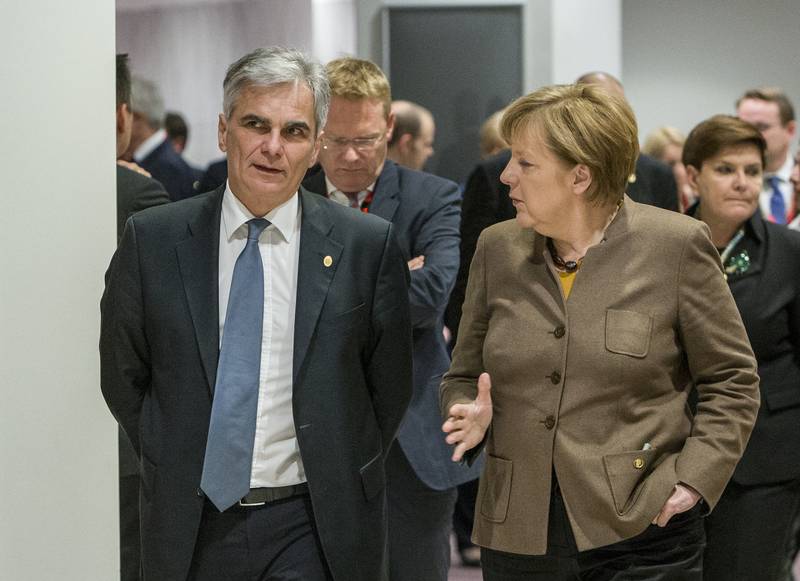 Werner Faymann, Angela Merkel | © Council of the EU
Werner Faymann, Angela Merkel | © Council of the EU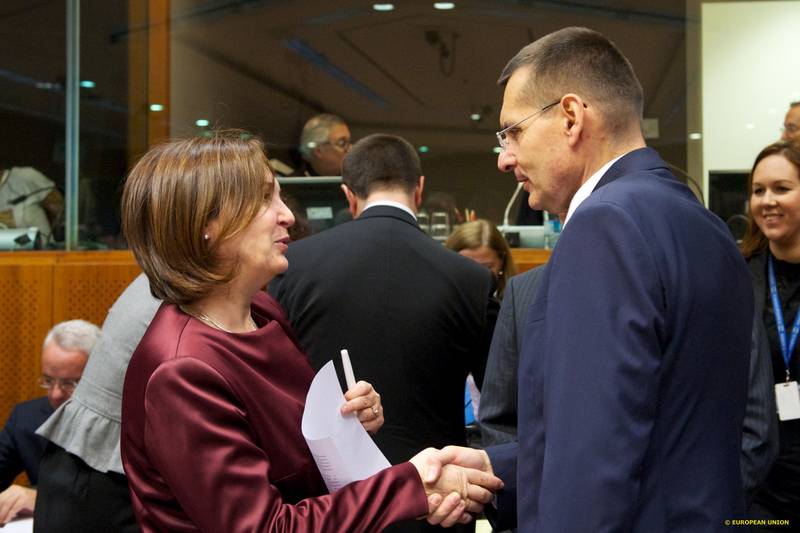 Rumyana Bachvarova, Petre Toba | © Council of the EU
Rumyana Bachvarova, Petre Toba | © Council of the EU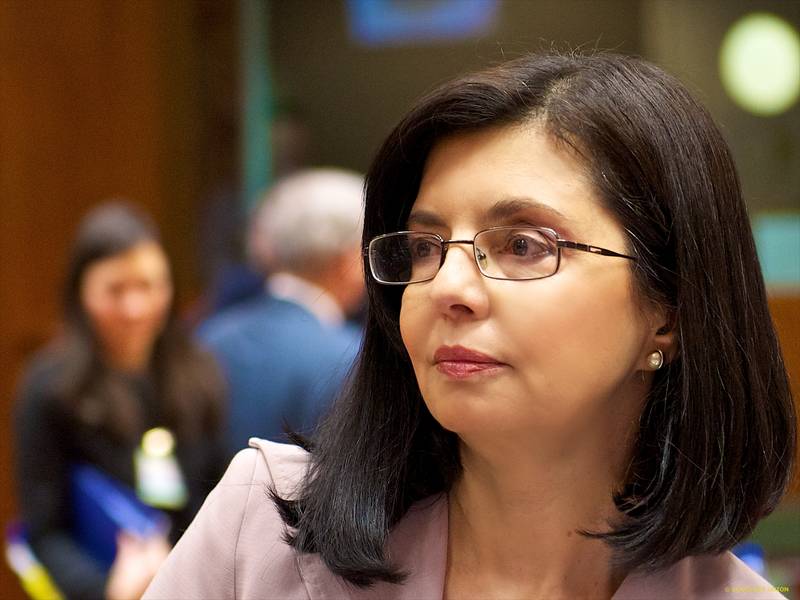 Meglena Kuneva | © Council of the EU
Meglena Kuneva | © Council of the EU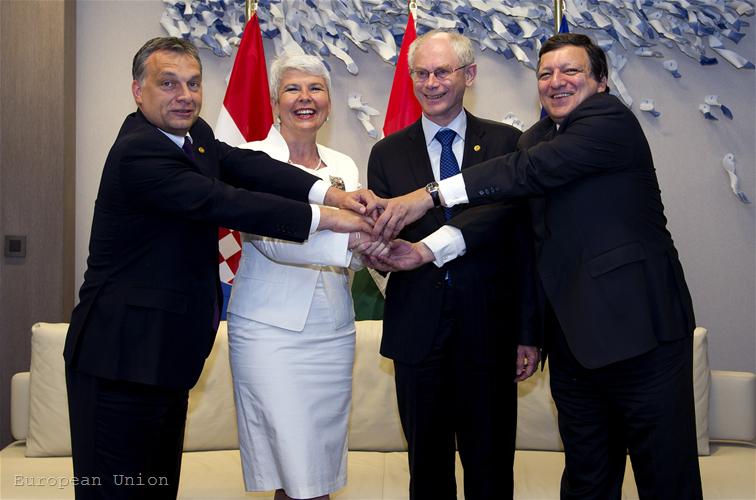 | © European Union
| © European Union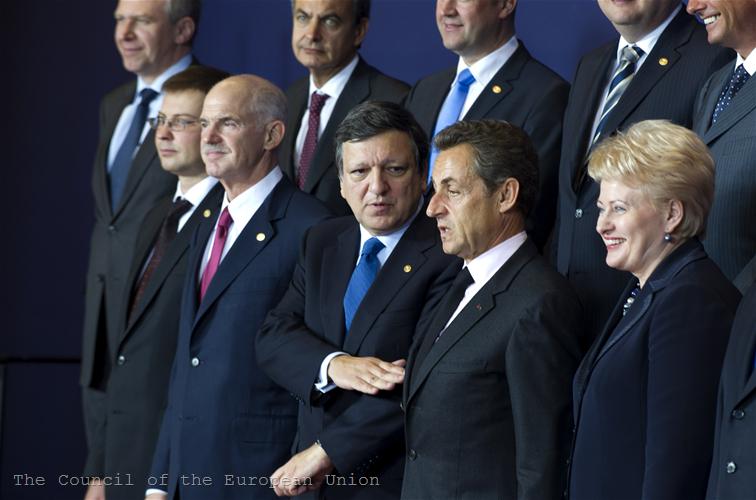 | © The Council of the European Union
| © The Council of the European Union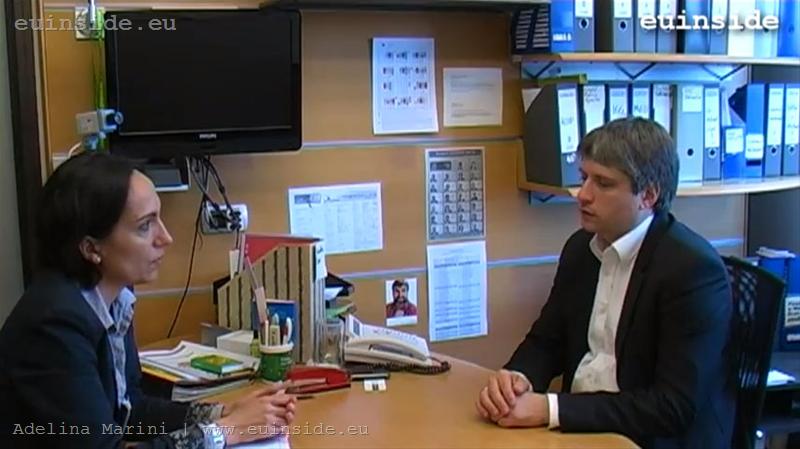 | © euinside
| © euinside